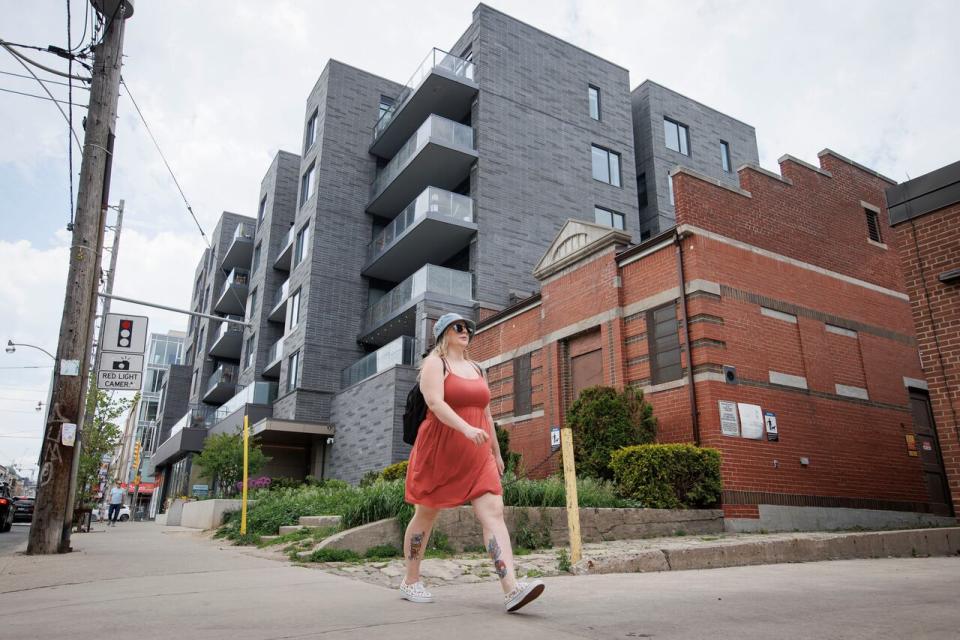Toronto will allow townhomes, small apartments on major streets

Toronto will allow townhouses and small apartments on the majority of major streets across Toronto, after city council voted to approve the move Thursday.
Before the change, townhouses and small apartments were only permitted in designated areas across the city. Now, up to six-storey apartments with a maximum of 60 units can be built along major roads as of right — which is 30 more units initially recommended by staff.
"We know Toronto has a serious housing crisis and we know we have to build now," said Mayor Olivia Chow.
"By building this way, we're saying yes to more neighbours, we're saying yes to newcomers ... we have promised to do whatever we can to support them."
The move, recommended in a report by city staff, will create "moderate" density in transit routes and corridors, help the city distribute growth more evenly, provide diversity in housing and help accommodate the city's growing population, the report says. It will also open up over 31,000 lots to new potential housing.
As part of the move, city council asked staff to find ways to create opportunities to build rent-controlled, affordable rentals and affordable ownership homes by non-profit providers on the lots.
Council has also directed staff to engage with communities in places such as Scarborough to "discuss the appropriateness" of the intensification and consider any feedback.
There weren't many areas that were excluded from the change. Areas near Lawrence Avenue East, east of East Avenue, for example, were omitted due to the minimal number of affected properties, the steep topography and the future expansion of Rouge National Park.
Some residents' associations have argued the city rushed the proposal. Some councillors unsuccessfully tried to exempt major streets in their wards from the move, including Don Valley East Coun. Jon Burnside, Scarborough-Guildwood Coun. Paul Ainslie, Etobicoke North Coun. Vincent Cristani and Etobicoke Centre Coun. Stephen Holyday.
Council did not pass their proposed changes.
The move is the latest change the city has undetaken to reach its housing goals. Toronto has endorsed a provincial goal of building 285,000 new homes in the city by 2030, and Chow's housing plan calls for 65,000 affordable housing units to be built in that same period.


